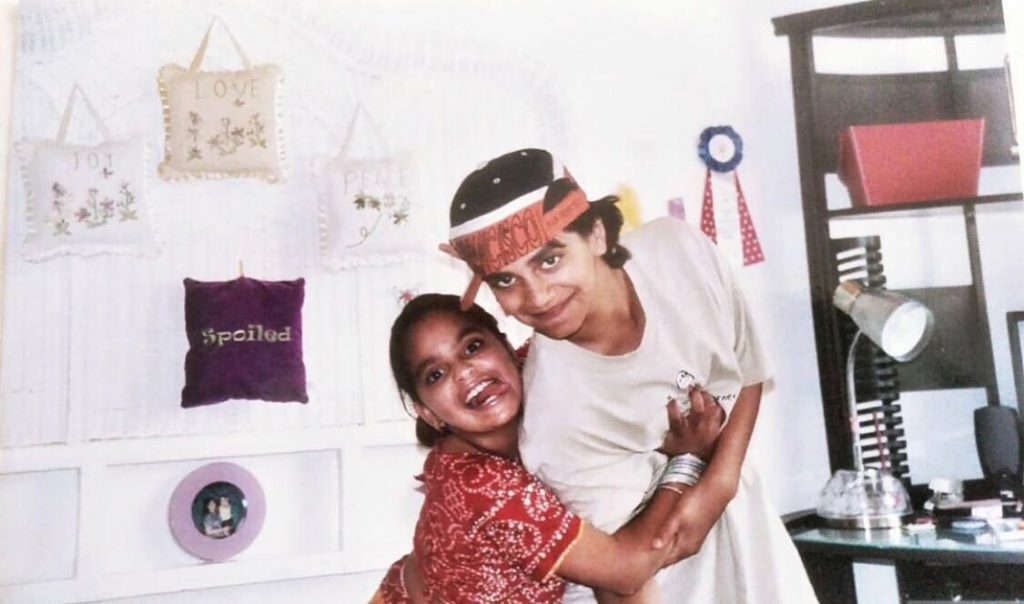
I remember holding the phone to my ear and the voice asked: “could you see the wound in his head, did they cover it well, did he look like himself?” I felt the air leaving my body and my heart progressively sinking.
He looked dead, but I couldn’t say that, because when people die we talk about how beautiful and handsome they looked in their casket, how wonderful they were. He did look handsome, his eyelashes that I envied for the 16 years I got to spend with him, were long as ever and his full-lip smile was set perfectly. I didn’t care how he was laid to rest, I cared that he was dead. He wouldn’t be there for anything, ever again.
The calls kept coming, they felt supportive yet unfamiliar. People I hadn’t heard from, people I wished would call but didn’t. Things I did that I now wonder were even relevant. How could I possibly be the same again?
When people die, we pretend it’s about them. It’s not. They don’t receive the flowers, they don’t pay for therapy, they don’t console others of their guilt. They don’t collect ashes and manage feelings.
[Read Related: Surviving Suicide: A Brown Girl’s Journey Navigating Through Grief and Bipolar Disorder]
Life after death is the burden of those who loved the deceased and their conscious. I don’t have all the answers, but this I know, I treated grieving like a problem that had a solution — moving on. We do not move on from the people we loved. We live the aspects of our lives we had with them over and over and over again. We are spectators to a film we may not want to watch but are cognitively designed to press play.
That is grief.
Grief is waking up at 3 a.m. having nightmares of your mother screaming on the floor after finding out her son was dead.
Grief is when you meet someone new who asks you if you have siblings.
Grief is swallowing the lump in your throat when you watch families embrace, and weddings, and kids, and hugs, and fights.
Grief is wanting to spread the joy that was the dead person to everyone and making it your life’s work.
Grief is replaying the day you found out your brother was dead via Facebook, over and over and over again.
Grief is pretending you’re numb to the rumors, to the hearsay, to the judgment.
Grief is trying to bury the feelings, grief is trying to deny when they resurface, grief is feeling the responsibility of caring for your parents, grief is leaning into those who love you but might leave you, grief is forever.
We don’t talk about grief or those who grieve. We talk about the five stages, we talk about the person who died, we talk about events, scholarships, memorials, processes. We talk about how “strong” grievers are, how “sorry” we are for them. We don’t see the grief, we can’t touch it, we can’t smell it. We add it to the list of things that make someone “unfortunate, sad, troubled, riddled with trauma” we do not make grief an individual experience.
[Read Related: 10 Ways to Nourish Your Physical, Mental, Emotional, Social and Spiritual Well-Being]
Grief is not a club. You do not lose someone and suddenly enter a network of “I have a dead person, too” people (these do exist though).
Grief is lonely. Grief is ugly. Grief is beautiful. And grief, it’s something we deny occurs but would never wish on our worst enemy.
Grief does not seek relatability or sympathy, grief seeks to nurture. I can’t say that all grievers desire this, but I did:
Check-in on your friends when it’s been days, and when those days turn into decades.
Live your life to the fullest and love the people you love in the way that you see fit, grief doesn’t need pity or “carefulness,” no amount of sparing someone’s pain tides their grief.
Treat grievers as though the people they have lost are still part of them, that can be discussed, not an eradicated phase of their lives.
Ask the questions you’re thinking about, this may not be okay for everyone but I wished that instead of the world talking about us, they’d just talk to us.
Do not tie their faults to their grief, grief does not make us dependent, it makes us human.
Perhaps grief just needs room to breathe, space to be acknowledged and the freedom to exist. Camaraderie lives in the acceptance of grief, not the similarities of loss.
Because grief is eternal.




